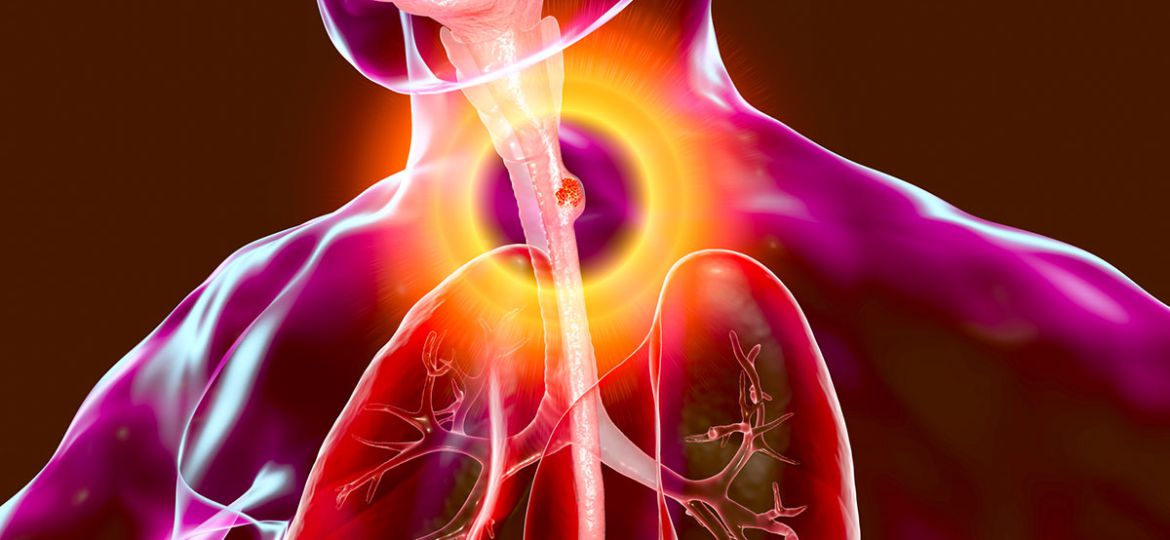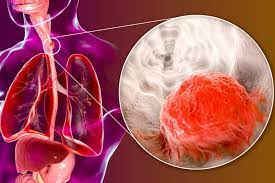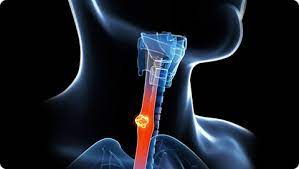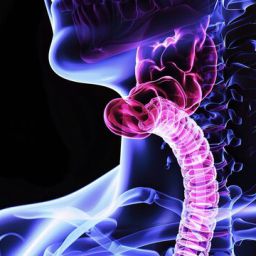
How Does Esophageal Cancer Develop?
The development of esophageal cancer follows a series of steps that involve genetic mutations, abnormal cell growth, and the formation of tumors. In the earliest stages, normal cells in the esophagus begin to mutate, leading to the formation of abnormal cells. These mutations can be triggered by various environmental factors, such as tobacco use, alcohol consumption, or acid reflux. Over time, these abnormal cells may grow uncontrollably, forming a mass or tumor.
Esophageal cancer often begins in the inner lining of the esophagus and can spread to the surrounding layers. As the cancer progresses, it may invade deeper layers of the esophagus and potentially spread to nearby lymph nodes or distant organs, such as the liver, lungs, or bones.
Causes and Risk Factors for Esophageal Cancer
Several factors contribute to the development of esophageal cancer. These include genetic predispositions, environmental factors, and lifestyle choices that increase the likelihood of mutations occurring in the esophageal cells.
1. Tobacco Use and Smoking

- Tobacco use, particularly smoking, is one of the leading causes of esophageal cancer. The chemicals in tobacco smoke can damage the cells of the esophagus and increase the likelihood of mutations that lead to cancer. Both cigarette and smokeless tobacco use are associated with an increased risk of esophageal squamous cell carcinoma.
2. Alcohol Consumption
- Heavy alcohol consumption is another significant risk factor for esophageal cancer, particularly squamous cell carcinoma. Alcohol can irritate and damage the lining of the esophagus, which increases the risk of cancerous changes. When combined with tobacco use, the risk is significantly higher.
3. Gastroesophageal Reflux Disease (GERD) and Barrett’s Esophagus
- Gastroesophageal reflux disease (GERD) is a condition in which stomach acid frequently flows back into the esophagus, irritating its lining. Over time, chronic acid reflux can lead to a condition known as Barrett’s esophagus, which involves changes to the esophageal lining. Barrett’s esophagus is considered a precursor to esophageal adenocarcinoma and significantly increases the risk of developing cancer.
4. Obesity
- Obesity has been linked to an increased risk of esophageal adenocarcinoma, particularly in individuals with GERD. Excess body weight puts additional pressure on the stomach, leading to more frequent acid reflux, which in turn increases the risk of Barrett’s esophagus and esophageal cancer.
5. Age and Gender
- Esophageal cancer is more common in individuals over the age of 55, with the incidence increasing as people age. Additionally, men are more likely to develop esophageal cancer than women. This difference may be partly due to lifestyle factors, such as higher rates of smoking and alcohol use in men.
6. Dietary Factors
- Poor dietary habits may also contribute to the development of esophageal cancer. Diets low in fruits and vegetables and high in processed meats and fats have been linked to an increased risk of esophageal cancer. Conversely, a diet rich in antioxidants and fiber from fruits and vegetables may help reduce the risk of this cancer.
7. Human Papillomavirus (HPV) Infection
- Human papillomavirus (HPV), particularly certain high-risk strains of the virus, has been associated with an increased risk of esophageal squamous cell carcinoma. While HPV is most commonly linked to cancers of the cervix, head, and neck, research suggests that it may also play a role in the development of esophageal cancer.
8. Family History and Genetic Factors
- A family history of esophageal cancer can increase the risk of developing the disease. Genetic mutations and inherited conditions, such as Tylosis (a rare condition that causes thickening of the skin and nails), have also been linked to a higher risk of esophageal cancer.
Symptoms of Esophageal Cancer
In the early stages, esophageal cancer may not cause noticeable symptoms, making early detection difficult. As the cancer progresses, however, patients may begin to experience a range of symptoms that indicate the presence of the disease. Common symptoms of esophageal cancer include:

- Difficulty swallowing (dysphagia): One of the most common symptoms of esophageal cancer is difficulty swallowing, particularly when eating solid foods.
- Unexplained weight loss: As the tumor grows, it can obstruct the esophagus, making it difficult to eat and leading to unintended weight loss.
- Pain or discomfort in the chest or throat: Pain or pressure in the chest, especially when swallowing, can occur as the tumor grows and presses on surrounding tissues.
- Persistent heartburn or acid reflux: Individuals with GERD or Barrett’s esophagus may experience worsening heartburn, a common symptom of esophageal cancer.
- Coughing or hoarseness: If the tumor affects the vocal cords or the airways, it may cause a persistent cough or hoarseness.
- Vomiting or blood in the vomit: Advanced esophageal cancer may cause bleeding, leading to blood in the vomit or stool.
Diagnosis of Esophageal Cancer
Diagnosing esophageal cancer typically involves a combination of tests to examine the esophagus and determine the presence of cancerous cells. These tests include:
- Endoscopy: A procedure in which a flexible tube with a camera is inserted into the esophagus to examine the lining and collect tissue samples for biopsy.
- Biopsy: Tissue samples taken during endoscopy are examined under a microscope to confirm the presence of cancer cells.
- Barium Swallow X-ray: A special X-ray that involves swallowing a contrast substance to create detailed images of the esophagus.
- CT or PET Scans: These imaging tests are used to determine if the cancer has spread to other parts of the body.
- Endoscopic Ultrasound (EUS): A procedure in which a special ultrasound is used during endoscopy to assess the extent of the cancer and whether it has spread to nearby lymph nodes.
Treatment Options for Esophageal Cancer
The treatment of esophageal cancer depends on the stage of the disease, the type of cancer (squamous cell carcinoma or adenocarcinoma), and the patient’s overall health. The main treatment options for esophageal cancer include surgery, chemotherapy, radiation therapy, and targeted therapy.
1. Surgery
- Esophagectomy: The most common surgical procedure for esophageal cancer is an esophagectomy, which involves removing the affected portion of the esophagus. In some cases, the entire esophagus may need to be removed, and the stomach is then reconstructed to allow swallowing.
2. Chemotherapy
- Chemotherapy uses powerful drugs to kill cancer cells. Chemotherapy may be used before surgery to shrink the tumor or after surgery to kill any remaining cancer cells. It may also be used in combination with radiation therapy for patients who cannot undergo surgery.
3. Radiation Therapy
- Radiation therapy uses high-energy radiation to kill cancer cells or shrink tumors. It may be used in combination with chemotherapy or as a palliative treatment to reduce symptoms and improve quality of life.
4. Targeted Therapy
- Targeted therapies are drugs that target specific molecules involved in the growth and spread of cancer. For esophageal cancer, targeted therapies such as HER2 inhibitors may be used in certain cases.
5. Immunotherapy
- Immunotherapy is a newer treatment approach that boosts the body’s immune system to help it fight cancer. Immune checkpoint inhibitors, which block proteins that prevent the immune system from attacking cancer cells, may be used in some cases of esophageal cancer.
6. Palliative Care
- For patients with advanced esophageal cancer, palliative care may be used to manage symptoms and improve quality of life. This may include procedures to relieve blockages in the esophagus or to manage pain and discomfort.
Esophageal cancer is a challenging and aggressive disease that can be difficult to diagnose in its early stages. Its development is influenced by a combination of genetic, environmental, and lifestyle factors, including smoking, alcohol consumption, obesity, and chronic acid reflux. Understanding the risk factors and symptoms of esophageal cancer is crucial for early detection and timely treatment.
Treatment for esophageal cancer varies depending on the cancer’s stage and type, and it may include surgery, chemotherapy, radiation therapy, targeted therapy, and immunotherapy. As with all cancers, early diagnosis and intervention are key to improving survival rates and enhancing the quality of life for patients.

